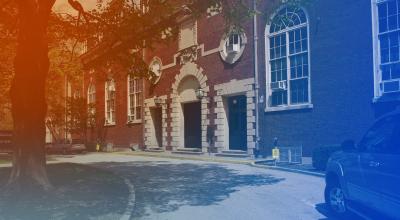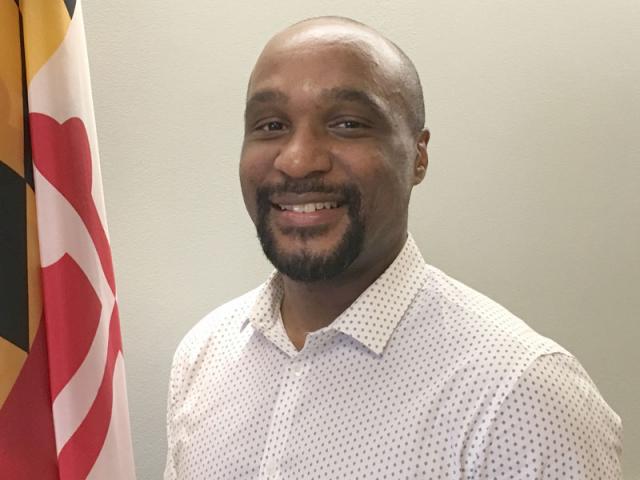
Travis Gayles Ties His Success to Mentor
AHS E-News: September 2019

by Vince Lara, Media Relations Specialist
For Travis Gayles, the decision to attend the University of Illinois at Urbana-Champaign—and particularly the College of Applied Health Sciences—came down to a chat with the man who became his mentor, as well as timing.
Now the County Health Officer and Chief of Public Health Services of Montgomery County in Maryland, Travis completed his Ph.D in Community Health in 2009 with an emphasis on health policy. He also earned his M.D. from Illinois. While at Urbana-Champaign, he received the Diane Gottheil Award for Outstanding Medical Scholar in the Social Sciences and Humanities, and the University of Illinois Alumni Leadership Award.
But that might not have happened for the Chase City, Virginia, native, had it not been for a meeting gone awry. Travis came to the campus to interview in February, 2003, and spoke with Dr. Reginald Alston, associate dean of academic affairs at AHS.
“We just hit it off,” Gayles said. “We shared research interests, and the personal chemistry was great.” It just so happened that the person Travis was meeting next was running late, so he and Dr. Alston were able to talk for over an hour.
“And it just fit. I was sold on the opportunity to come to Illinois, focus on projects, and work with someone like Dr. Alston,” he said.
A native of the East Coast and graduate of Duke, Travis hadn’t given much thought to going to school in the Midwest, nor did he know much about it outside of Chicago.
“But I received a flyer in the mail from the University of Illinois Medical Scholars Program and was intrigued by the fact that you could get a Ph.D in just about any of the graduate programs,” he said.
After completion of his residency, Travis joined the Division of Academic Pediatrics and Adolescent Medicine at the Northwestern Feinberg School of Medicine, and in 2017 assumed his current role, closer to his Virginia roots.
“Twenty years ago when I started the process, I couldn't have predicted what I'm doing today,” he said. “But when I sit in my office and do the work that I do, and look at my trajectory from then to now, it makes perfect sense.”
And Travis recognizes that without Dr. Alston’s advice, it would not have been possible.
“He ended up being my major advisor here and was just a great influence in terms of how to navigate the system as a young professional, a young academic, but without the ego,” he said. He recalled that the only time Dr. Alston “yelled” at him was over the concept of academic property. “He had given me an opportunity to write a book chapter with him, and I had done the lion's share of the work and put together a draft,” Travis said, “and Dr. Alston said, ‘It's a great draft, and everything looks good, but I have one problem. You never asked to be the author. This is your information.’
“I just assumed that when you're working with a professor, they take over. He said, ‘Absolutely not. It's not about ego. My job as your mentor and advisor is to push you even beyond where I am today in order to be successful.’”
Since graduating, Travis has become an advocate and a financial supporter of AHS. “I have had the benefit of great mentors along the way as well as financial support,” he said, “and I think it's important to show thanks for that, to be able to pay it forward, whether in the form of a financial contribution or coming back to give a talk.”
Travis returned to Urbana-Champaign in mid-August to serve as keynote speaker at the College of Medicine’s Medical Scholars Program & Student Retreat. The focus of his speech was a road less traveled.
“I think I chose the road analogy because roads imply a connection between different destinations,” he said. “It implies that there is a journey. And the other piece of it is that most roads aren't exactly linear. I also wanted to share how the tools that I gained here at Illinois play out in what I do today.”
Ultimately, Travis is thankful for the lessons learned at Illinois.
“Every step of the way was about learning more, getting new opportunities to learn, and ultimately being successful 10 or 20 years down the line,” he said, “and being able to provide that same mentorship to others.”
